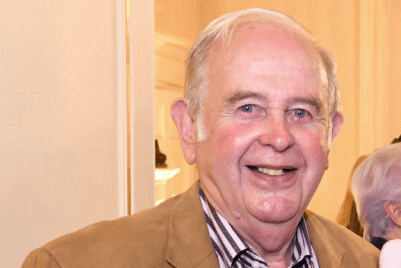Under-threat charity Live at Home has received a financial lifeline that could see it continue to provide core services.
In a letter sent out last Friday, Live at Home chief executive Karen Winter announced that the charity was to close on August 28 for financial reasons.
But today charity chairman David Gawne said he had received an offer of finance that would enable Live at Home to continue to provide a reduced, core level of service.
He said: ‘I feel much more upbeat than I did last week. What a difference a day makes.’
Ten members of staff are to be made redundant but it is hoped that five can be taken back on.
Mr Gawne said the charity had been ‘struggling to pay our way’ and it had got to a stage where a decision had to be made close now, honour redundancy payments and come out with a small balance.
However, the decision was also taken not to wind up the charity but to look at restructuring it so that it could offer the core level services that it had begun with 27 years ago. These include the one to one befriending scheme, lunch clubs and outings.
The intention had been to launch a public appeal for funding.
But an island-based benefactor has come forward today (Tuesday) with an offer of funding that will go some way to provide the working capital needed to put the charity back on a sustainable footing.
And last week, Live at Home, currently based at the Salmon Lake Centre in Laxey, was offered alternative accommodation enabling it to reduce costs further.
Mr Gawne described these as ‘genuine’ offers.
Running costs are currently £300,000 annually but it is hoped that the restructuring will reduce this to about £140,000.
Grant support from government totals about £30,000. It is estimated that the charity can generate about £90,000 a year through fund-raising. The offer of support in kind in the form of alternative accommodation works out at about £15,000.
Mr Gawne said Covid had made a massive impact on Live at Home’s finances and its ability to raise finance, while demand for its services has grown.
Fortunately the charity had the reserves to keep going post-pandemic but Mr Gawne said: ‘We’ve never been a charity that had a lot of money and we’ve always worked on a knife-edge. A lot of charities are in the same position.’
He said the charity relied on its team of 80 volunteers to provide services and it had been an unsettling time for them, the staff and their clients.
Mr Gawne said the charity was looking to continue its Men and Women in Sheds schemes.

.jpeg?width=209&height=140&crop=209:145,smart&quality=75)


